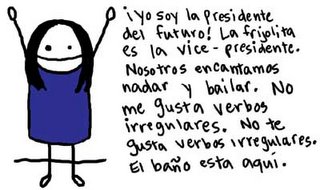
Never, never be lazy” was the advice from Mrs. Beights, my high school algebra teacher, during my high school graduation. For a long time I had the idea that she was referring to responsibility; however, the experiences that I have being gaining as an undergraduate student had helped me learn that Mrs. Beigths was alerting me of the vigorous college life. My past two years as an undergraduate student had being a constant cycle. Firs, during the fall semester, because of the big amount of time that my cross country practices take from my schedule, I only take a minimum amount of classes. During this semester, I wake up at five in the morning every day except on Saturdays, which is race day. In addition with practice, a three day part time job, in order to pay rent, and classes, my fall semester becomes really busy.
Second, during the spring, my stress from the numerous classes I take, rises to the ceiling.
During this semester, in order to maintain thirty credits per school year without attending summer school, I take eighteen credit hours, which make me spend most of my days in the library trying to cutch up with assignments. In addition with assignment, projects, study group and a part time job, the spring semester becomes one of the busiest parts of the year for me.
Finally, during the summer, I work in order to save money for the following school year. For the past three summers, I had work in a country club in order to save money. This is yet one of my biggest challenges because no matter how much money I save, I end up spending most of it before the beginning of the school year.




